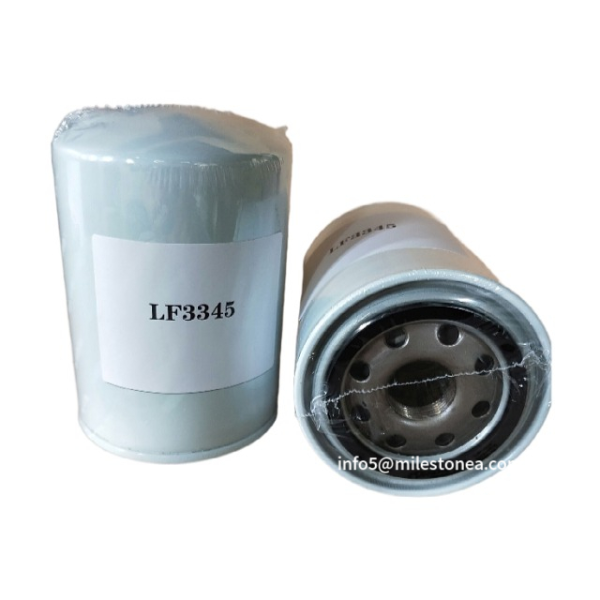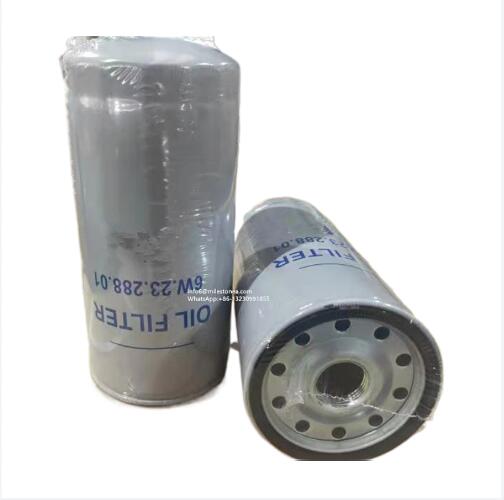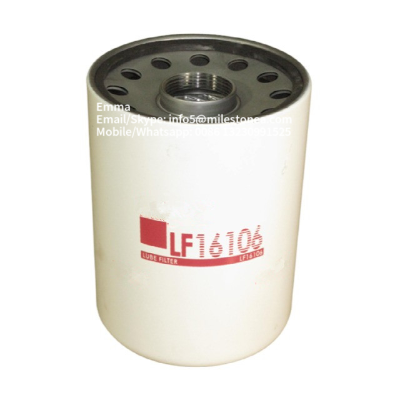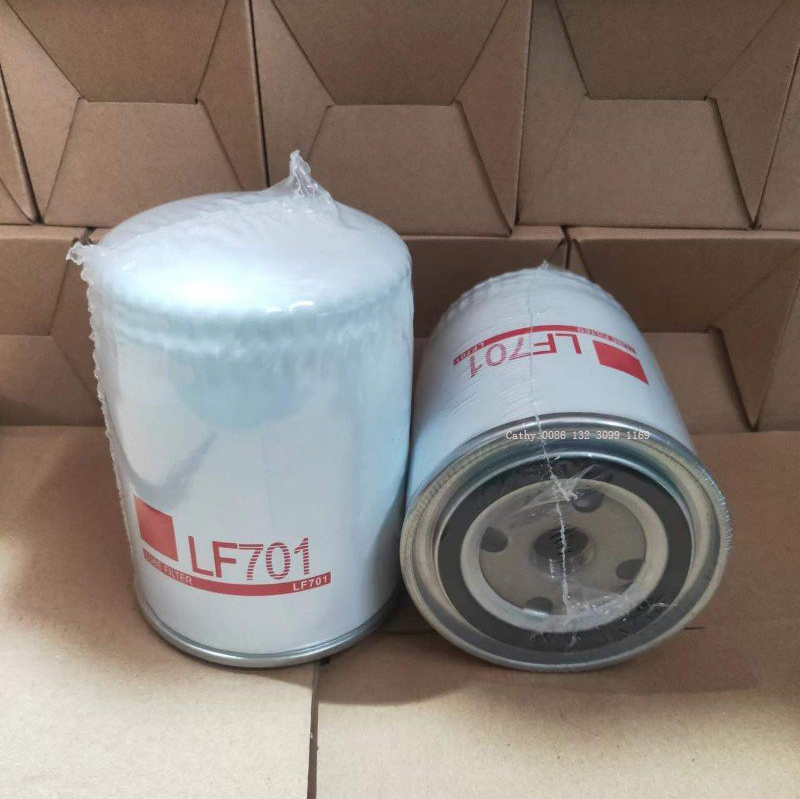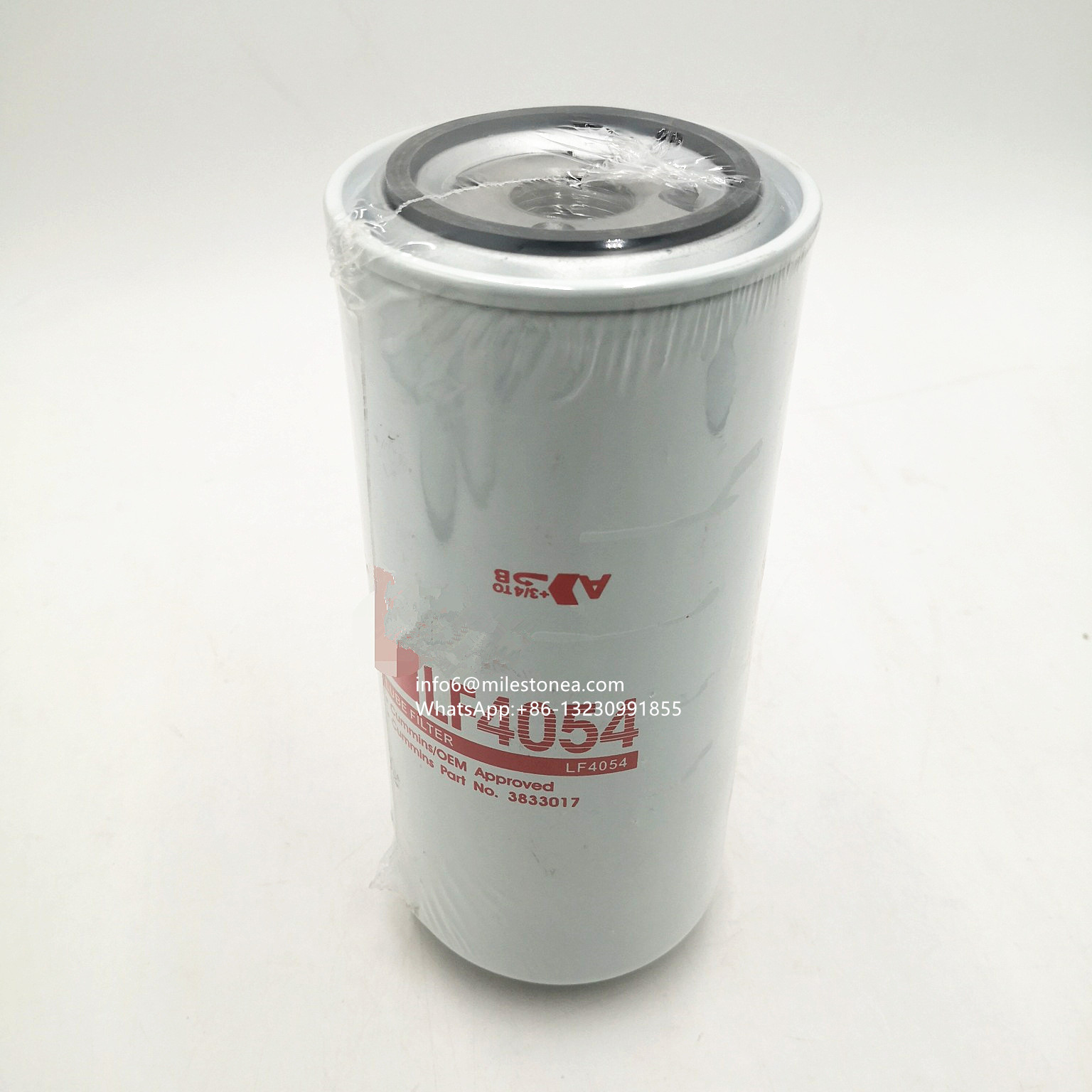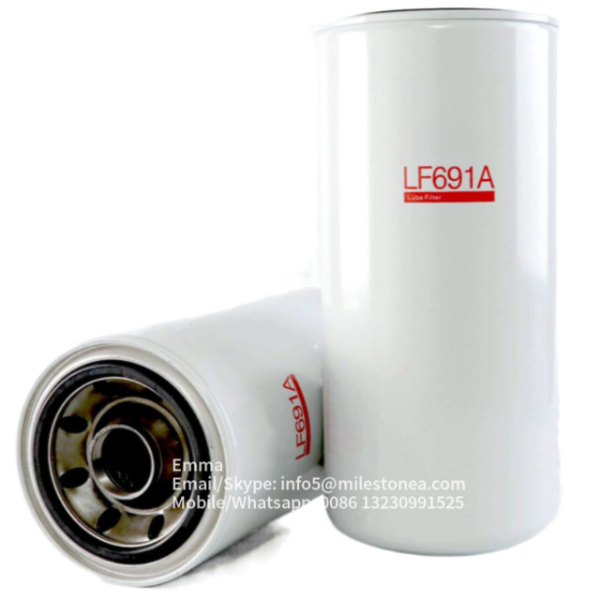LF9009 6BT5.9-G1/G2 Diesel engine spin on oil filters engine
|
Dimensions |
|
| Height (mm) | 289.5 |
| Outside diameter (mm) | 118 |
| Thread Size | 2 1/4″ 12 UN 2B |
|
Weight & volume |
|
| Weight (KG) | ~1.6 |
| Package quantity pcs | One |
| Package weight pounds | ~1.6 |
| Package volume cubic Wheel Loader | ~0.009 |
Cross Reference
|
Manufacture |
Number |
|
BALDWIN |
BD7309 |
|
DOOSAN |
47400023 |
|
JCB |
02/910965 |
|
KOMATSU |
6742-01-4540 |
|
VOLVO |
14503824 |
|
CUMMINS |
3401544 |
|
JOHN DEERE |
AT193242 |
|
VOLVO |
22497303 |
|
DONGFENG |
JLX350C |
|
FREIGHTLINER |
ABP/N10G-LF9009 |
|
FLEETGUARD |
LF9009 |
|
MANN-FILTER |
WP 12 121 |
|
DONALDSON |
ELF 7300 |
|
DONALDSON |
P553000 |
|
WIX FILTERS |
51748XD |
|
SAKURA |
C-5707 |
|
MAHLE ORIGINAL |
OC 1176 |
|
HENGST |
H300W07 |
|
FILMAR |
SO8393 |
|
TECFIL |
PSL909 |
|
METAL LEVE |
OC 1176 |
|
MAHLE |
OC 1176 |
|
GUD FILTERS |
Z 608 |
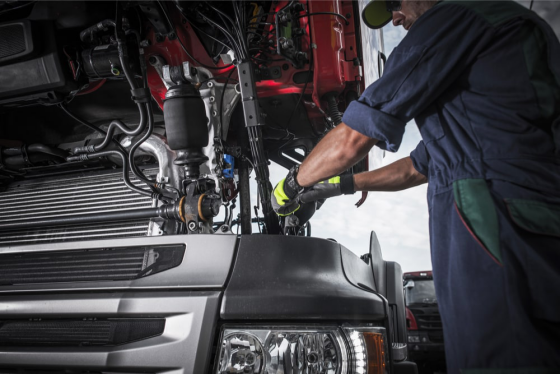
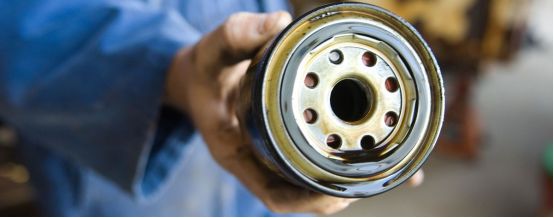
Oil is essential for the smooth lubrication of your engine. And your oil filter plays a vital role in ensuring your oil can do this.
An oil filter protects your engine from potential damage by removing the contaminants (dirt, oxidized oil, metallic particles, etc.) that can accumulate in the motor oil due to engine wear. See our earlier blog about the potential damage a clogged or damaged oil filter can cause.
You can help extend the life and effectiveness of your oil filter by using a high-end synthetic oil. Synthetic motor oil is more refined and distilled than regular oil, so it will last longer and is less likely to clog your filter.
How often do you need to change your oil filter?
You should replace your oil filter every time you carry out an oil change. Typically, that means every 10,000km for a petrol car, or every 15,000km for a diesel. However, we recommend that you check your manufacturer’s handbook to confirm the specific service interval for your vehicle.
There are several reasons for this:
1. Reducing engine wear
Over time, contaminations will build up on your oil filter. If you wait until your filter is completely clogged there is a chance that the passage of oil will be obstructed, stopping the flow of purified oil to your engine. Luckily, most oil filters are designed to prevent catastrophic engine failures from improper lubrication in case of an obstructed oil filter. Unluckily, the bypass valve allows oil (and contaminations) to pass without going through the filter. While this means your engine is lubricated, there will be accelerated wear and tear due to the contaminations.
2. Reducing maintenance costs
By synchronising your oil change and oil filter replacement frequency, you reduce your overall maintenance costs by only needing a single maintenance. A new oil filter isn’t expensive, especially when compared to the cost of the potential damage contaminants in your engine can cause.
3. Avoiding soiling your new oil
It is possible to leave your old oil filter and only change your oil. However, the clean oil will need to go through the dirty, old filter. And as soon as you start your engine, your clean engine will quickly become as dirty as the oil you just drained out.
Symptoms that you need to change your oil earlier than expected
Sometimes your car gives you a sign that your oil filter needs to be replaced earlier than expected. These signs include:
4. Service engine light illuminated
Your service engine light can come on for a multitude of reasons, but it means that your engine isn’t working as well as it should be. Often, this means there is a lot more grime and debris in circulation in your engine, which could clog your oil filter quicker than usual. It’s best to rule out simpler (and cheaper) options before paying out a lot for diagnostics and repairs.
Some newer cars also have an oil change indicator light or an oil pressure warning light. Don’t ignore either of these lights if they come on in your car.
5. Driving in severe conditions
If you regularly drive in severe conditions (stop-and-go-traffic, towing heavy loads, extreme temperatures or weather conditions, etc.), you will probably need to replace your oil filter more often. Severe conditions make your engine work harder, which results in more frequent maintenance of its components, including the oil filter.




